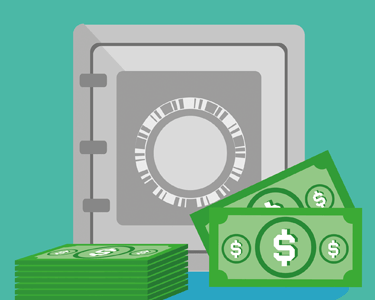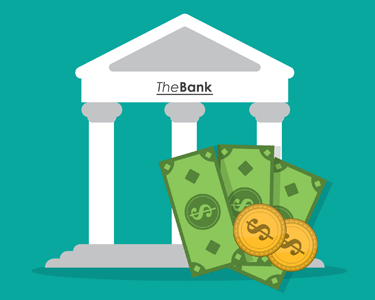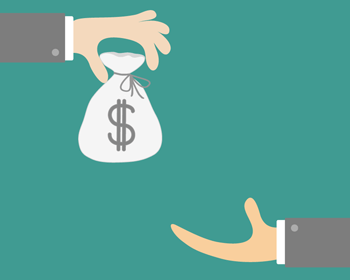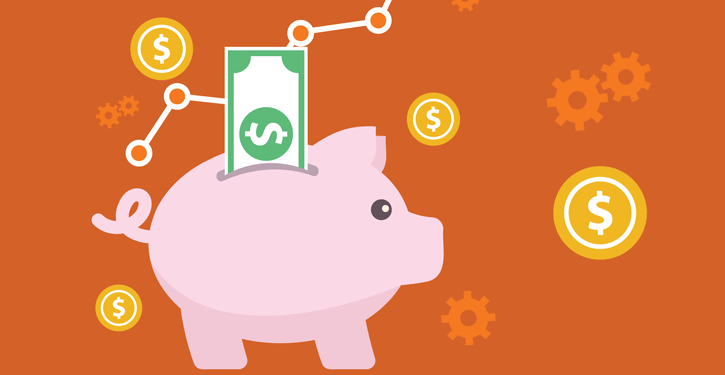Thanks to the historically low interest rates in the United States, Certificates of Deposit, or CDs, have fallen out of favor for savers trying to grow their nest egg. As interest rates begin to rise in the coming years, CDs may be worth considering as one way to lock in higher yields on money that won’t be needed immediately.
What is a CD, and how does it work?
A Certificate of Deposit is a special kind of savings account offered by most banks and credit unions (credit unions usually call them “share certificates,” but the product is the same). In exchange for agreeing to lock up your money for a specified period of time, financial institutions will pay a higher rate of interest than they do on traditional savings accounts.
At the end of your CD’s term, the amount you deposit and any interest earned will either be deposited into a bank account or rolled over into a new CD of the same length (although the interest rate on the new CD may be higher or lower depending on prevailing interest rates).
What are the advantages of a CD?
The most important difference between a CD and other kinds of investments is that your deposit, including any interest that accrues on it, is guaranteed by the full faith and credit of the United States government. The FDIC insures bank deposits and its sister organization the NCUA insures credit union deposits. That means there is no risk of losing your savings, as there is when buying stocks or bonds.
What are the disadvantages of a CD?

What should I look for in a CD?
The two most important elements of any CD or share certificate are its interest rate, expressed as an annual percentage yield (APY) and its term, or the length of time your money will be held before you can withdraw it without penalty.

What kind of savings is a CD right for?
Because of the relatively low interest rates they pay, CDs aren’t for everyone. For example, a young worker saving for retirement will likely be better off in the long run taking some additional risk and investing in a well-diversified portfolio of stocks and bonds.
At times, however, certificates of deposit can offer benefits other investments can’t. If you’re saving towards a large purchase planned for a definite date in the future, a CD can be a great place to stash those savings and earn more than you would in a typical savings account (or under your mattress), without the loss risks associated with stocks and bonds.
A down payment on a house and a child’s future college tuition tab are the kinds of expenses that have a specific due date. By moving your investments into CDs as the due date approaches, you can cut out the risk that a sudden corporate bankruptcy or bear market will lower the value of your investment or delay access to your funds as you create a strategy to recover from the loss.
What’s a CD ladder?

Since the APY paid on a CD goes up as its term gets longer, a CD ladder gives this retiree the benefit of both higher interest rates and regular access to cash. Using CDs instead of stocks or bonds for savings needed in the near-term reduces the risk of a stock market shock depleting the retiree’s savings prematurely.
What are the risks of using a CD?

The second risk is in some ways more serious: that rising prices and interest rates will erode the value of your deposit and interest before you get a chance to collect it. Inflation has been historically low since the global financial crisis, but may rise. If you make a deposit at 2% APY expecting consumer prices to increase by 1.5% annually, but inflation instead spikes to 3% annually, instead of collecting a small real return after adjusting for inflation, you’ll end up with less purchasing power than you started with. If you’re concerned about that happening, but still want the federal guarantee CDs enjoy, then you should stick to CDs with shorter maturities and the lower yields they offer.
CDs are just one option of many
Certificates of deposit and share certificates are not designed for long term, patient investors. A well-diversified portfolio of domestic and international stocks and bonds is virtually certain, after inflation, to generate higher real returns than even the best-designed CD ladder.
However, CDs do offer a federally-guaranteed return of your principle and accrued interest, and may be worth considering as a savings vehicle for purchases on a definite, short-term horizon. If you’re the kind of person who is constitutionally incapable of riding out a dip in the stock market, then the comfort of a federal guarantee may be what you need to sleep well at night.
Just remember that the lower the return you earn on your savings, the more of your income you’ll need to save each year to assure yourself of a comfortable and dignified retirement.





















